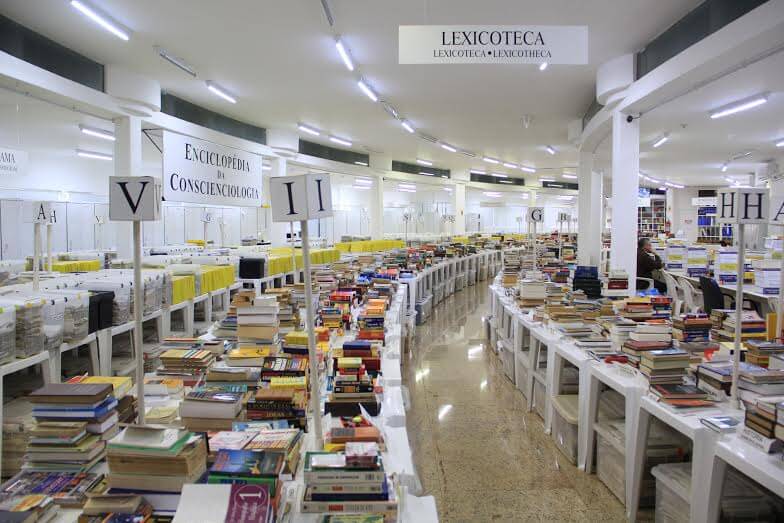Holocycle
Holocycle

An incubator of authors, CEAEC, the Center for the Higher Studies of Conscientiology disposes of a specialized environment for the production of knowledge: the Holocycle, a technical-scientific mega-laboratory where since 2000 leading research on consciousness, the intelligent and immaterial principle of an individual, is carried out daily.
The investigations carried out include the creation of the Encyclopaedia of Conscientiology. The work began in 1998 and is dedicated to the in-depth study of the human personality, from a multidimensional perspective, in addition to the physical dimension in which we live.
The Encyclopaedia of Conscientiology is the set of analyzes and synthesis of the intellectual work of Waldo Vieira, accumulated, developed, and updated from the formation of its personal library, in 1941.
Using innovative techniques for writing and systematizing information, Vieira, together with a team of researchers, produced detailed and exhaustive entries, or verbets. The theme of re-urbanization, concerning the improvement of environments and consciousnesses, originated the book Homo sapiens reurbanisatus, with 1.584 pages and 7.653 references, which was released in 2003. This work constituted a model for other publications in preparation such as Homo sapiens pacificus, dedicated to pacifism, and Homo sapiens neonatus, dedicated to the study of the newborn child. In the Holocycle, there are other texts also being produced, such as the one guiding on the elaboration of the Encyclopaedia itself, the Fundamentals of the Encyclopaedia, and its redaction formulas.
Starting from the maxim that there is no broad culture without permanent consultation to hundreds of reference works, the Holocycle maintains three main collections, constantly expanding: the Lexicotheca, which gathers about 5.100 dictionaries; the Hemerotheca, with more than 417 thousand newspaper and magazine clippings; and the Encyclotheca, with dozens of encyclopaedias. They also provide support to the Holocycle’s other 275 collections of CEAEC knowledge artifacts.
The Lexicotheca collection is made up of idiomatic dictionaries on diverse subjects such as: biographies, sciences, etymology, psychology, history, among other 848 areas of knowledge. For the collection of articles, the Hemerotheca receives newspapers and magazines from the main Brazilian capitals and from several countries abroad, totaling more than 650 different periodical collections.
The importance given to journalistic matters is associated with the idea that the facts guide the research in conscientiology. Many of the occurrences pointed out by newspaper and magazine clippings are the source of questions and correlations relevant to the study of consciousness. The selection is made using the cosmogram technique, used to relate the subject matter to the themes of conscientiology.
The dictionaries, in turn, help in the interpretation of the facts and in the accuracy of the meanings used in the writing of the texts. The other bibliographic sources contribute to the foundation, enrichment and expansion of the proposed approaches, through the contribution of relevant concepts and data.
The structure supporting the development of the Encyclopaedia of Conscientiology involves the participation of 232 volunteers, participants from 37 specialized Holocycle teams, including bibliographers, editors, writers, lexicographers, linguists, neologists, reviewers, and translators.
The team doing annotations, for example, assists in the detailed collation of bibliographic information for the elaboration of the references used in the Encyclopaedia, in order to allow a greater overview of the universe under analysis.
Volunteer activity in the Holocycle has led many researchers to develop self-awareness, focused attention, critical detail, analytical ability, continued good humor, perseverance, and rationality.
The Holocycle proposal is to enable each volunteer to promote the improvement of one’s own inner universe and to exercise productive and fraternal fellowship with other volunteers. In this way, the place starts to function as a laboratory for research and useful assistance to those interested in the study of consciousness.
According to Waldo Vieira, the objectives of the Encyclopaedia of Conscientiology are the same as human life: helping people to perform their existential programs in the best possible way, in order for them to achieve the personal constructive goals they set for them in their current lifetime.
Know more
